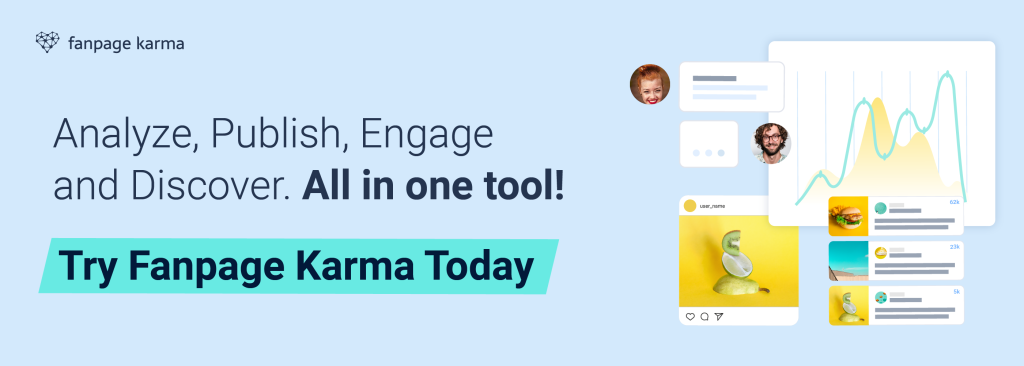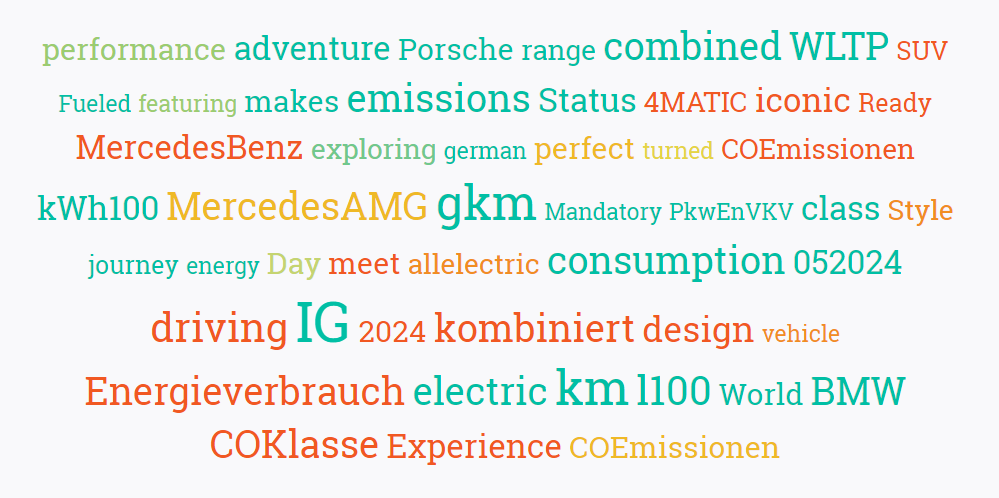Facebook SEO Tips

Search engine optimization (SEO) has been an important topic for some time now. While you may consider SEO to be relevant for Google or other search engines, there are, in fact, many important aspects of social media SEO that you should keep in mind. However, are these best practices the same? Do social media networks such as Facebook really operate in a way that is similar to search engines such as Google or Bing?
In reality, Facebook SEO is concerned with helping your page and content to be more easily found on Facebook, and may even help you appear in search engine results if your content is relevant. You should keep in mind that there are some similarities and differences when it comes to SEO for search engines such as Google and social media networks. On one hand, many common principles and best practices remain the same, at least in a general sense. However, there are also some differences that you should be aware of that relate to the unique setup of social media networks.
In order to help you navigate the building for your own social media activities, we will go over SEO best practices for Facebook and explain what you should keep in mind. In doing so, we will discuss a number of areas that you should pay special attention to for your own Facebook page, whether you are a business, influencer, or just someone who wants to get their Facebook page noticed. This includes what Facebook SEO tools you should consider using and how to think about how SEO and Facebook in general.
First, Is SEO for Facebook Even Important?
Let’s start at the very beginning of the discussion about social media and SEO in general. As we have covered elsewhere, social media networks and search engines on a basic level have similar goals. After all, they are designed to help you find the content you are searching for as accurately and quickly as possible. In this sense, you want to make sure your content and/or page is as easily discoverable as possible.
You may think that social media be all about content, with the best pages and posts being seen by the most people. While creative and engaging posts are, of course, essential for successful social media activities, there are some steps to take before you even start creating your posts that can help your overall performance.
SEO for your Facebook page is designed to help get you noticed by making it easier for content to be found. An important aspect of this is keeping the Facebook algorithm in mind when you are creating your page and content. Facebook SEO best practices can help increase positive signals to your page that shows the Facebook algorithm that it has the type of content people are looking for. The main goal with Facebook SEO is make it easier for your content can get noticed, which will, in turn, help you increase your visibility even more. Additionally, your page and content may even show up in the search results of search engines as well, which will help your page get noticed by even more people.

Facebook SEO Tips and Best Practices
We will do our best to highlight the most effective tips that will help you build a social SEO strategy for your Facebook page. This includes a description of what Facebook SEO tools you can use in order successfully research and implement such a strategy. At the end of the day, we want to show you how to do SEO for your Facebook page. Below are 6 Facebook SEO Tips that almost anyone can follow and implement.
1. Conduct Keyword Research
Similar to SEO for search engines, one of the first things you want to do is conduct keyword research. The reason for this is actually twofold. The first reason relates to something very basic, namely that you want to find out what people are searching for or what interests them. You probably already have an idea of what your primary topics or content interests are, but it also helps to see exactly what people are searching for. This can give you a good idea of what you should consider creating in terms of content.
The second reason is that you most likely are looking for ways to optimize your page title, content, and posts for searches that people make. Similar to SEO for search engines, it is helpful to integrate keywords or phases into your content in order to be more easily found by search engines and to make sure you are meeting the search intent for people looking for something in particular.
There are many different ways you can search for Facebook-focused SEO keywords. First, you can use a keyword research tool that helps you find relevant keywords based on available data from search engines. There are many keyword research tools on the market that can help you conduct general keyword research, and this can be a helpful start since it shows you how many people are searching for a specific topic online.
However, there are other, more targeted ways to go about this that focus much more on Facebook in particular. You may consider using a social media tool that allows for keyword research, especially when it comes to bringing similar profiles into your analysis to find various trends. This is because if all the profiles you are analyzing have a similar audience, you can get a good idea of what is trending within your industry or content area. It is helpful, moreover, to see what keywords are correlated with particularly high post interaction and engagement rates. This can help give you an idea of the various trending topics overall, as well as keywords that are correlated with high levels of engagement of a particular trend.
For instance, if you want to find out some of the keywords that are trending in the automobile industry, you can simply add a number of profiles to your analysis to find out what topics are popular in a specific timeframe. Below is a screenshot that comes from the social media tool Fanpage Karma that shows the various trending keywords in an industry. The data comes from May 2024 and looks at various keywords used by automobile manufacturers on Facebook: BMW, Buick, Cadillac, Chevrolet, Chrysler, Dodge, Fiat, Ford, GMC, Mercedes-Benz, Opel, Peugeot, Porsche, Renault.

Large words denote that those keywords were used more often, while the color of the word reflects the post engagement rates correlated with a specific word. Green words are correlated with higher post interaction rates and red words with lower post interaction rates. From this, you can get a good idea of what keywords are being used the most and whether they are correlated with many interactions.
2. Optimize Your Page’s Name/Title (and URL)
You may not think of this at first, but your page’s title should also be optimized. First, you should be sure that you have a tittle that will generate interest. It is also important to have a catchy page title that tells your audience what your page is about. However, keyword research is also relevant in these cases when thinking about SEO best practices for your Facebook page. This is because you want to integrate the main keyword(s) that describes your page into your title, so people looking for content on the subject can more easily find your page.
Similar to creating an optimized page title, creating a meaningful (descriptive) URL that contains the keyword(s) or keyword phase that describes the content on your page can be a good start. This is helpful in showing the overall theme or content area you are posting about. Generally, this is an easy SEO tip for your Facebook page with only a few steps to take, which is visit to your Facebook setting and adjust the information for your page.
3. Create an Optimized “About” Description
Your page description tells visitors what your profile is about and should clearly articulate why they should follow you and your content. It is important to make sure you make a clear case for why people should follow your page and why they should be interested in your content. This should include main keywords that accurately describe your page and the content that can be found on it.
4. Post at the Optimal Times
The time(s) you post on Facebook can have a real effect on your performance. The reason for that has to do with the signals that early engagement sends to the Facebook algorithm. If you post when your target audience is not online or less likely to interact with your posts, this can have an adverse effect on your engagement rate and, thus, with the Facebook algorithm. This means that finding the best times to post for Facebook that is an important task for planning purposes.
Posting at the right times may seem like a fairly straightforward Facebook SEO tip. The challenge, as always, with this is actually finding the best times to post. You may think that looking at some blog entries that have studied this may be effective. These studies may show you some general trends, but do not actually help you that much since they are not focused on your industry and/or location.
If you are serious about your Facebook performance, then you should consider conducting your own best time to post on Facebook research. In these cases, it can be extremely useful to use a social media tool that allows for unlimited profile tracking. This is so you can add a meaningful number of data points for your analysis that helps your analysis be more accurate.
Below is an example of a best time to post chart generated by Fanpage Karma. The data output is for May 2024 and comes from an analysis of the automobile manufacturing profiles we mentioned above when discussing keyword research. Large circles means more posts were posted during a particular timeframe while green circles means that there are higher average post interaction rates at those times (times are for the Central Timezone).

5. Reply to and Manage your Community of Followers
You may initially think that once you created your content and posted, the process is finished, at least when it comes to Facebook SEO best practices. However, there is still more work to do. Keeping your audience engaged and interacting can help your engagement rates and, thus, help you with Facebook’s algorithm as well.
Engaging with your Facebook followers can be burdensome, especially as your following grows, and you are required to respond to more comments, messages, etc. For this reason, it may make sense to invest in a community management tool that helps you organize and efficiently respond to comments and replies to your posts.

6. Get Backlinks!
Similar to SEO for search engines such as Google, backlinks are important too for Facebook SEO. Backlinks can help you drive traffic to your Facebook page or content, as well as serve as an important ranking signal for appearing in search engine results.
There are two broad backlink types we should mention here. The first is relatively easy to implement, and that is by linking from your own webpages or other social media accounts to your Facebook page. This is relatively easy to implement since it requires you only to set up links from your existing website(s), newsletters, or other social media profiles. Ultimately, this can help increase the number of visitors and overall followers to your Facebook, so this is a very important step to implement.
You can also try to win backlinks from other pages as well. These backlinks can come from websites that discuss topics similar to what your content addresses. Winning backlinks from other websites can help you increase traffic to your page and can help you rank in search engine results, since it sends an important signal to search engines such as Google that your content is seen as helpful and is trusted by others. Perhaps a page addresses a topic that an article on a webpage.

Conclusion: The Importance of Facebook SEO and Continuous Monitoring
So, once you implemented the above Facebook SEO tips, you are done, and you are guaranteed success, right? Not so fast. While these best practices are a good start, there are a few things to keep in mind. First, there is a need to constantly monitor your progress by measuring your performance with Facebook KPIs.
Second, there are other useful types of analysis you can do to help with content optimization, as well as benchmarking that can help you improve your overall performance. Facebook SEO is by no means the only important factor in making your Facebook activities a success. After all, there is much more that goes into your Facebook content and page to get noticed than just following Facebook SEO best practices.
If you are searching for Facebook SEO tools that can help your page gain followers, Fanpage Karma offers a free 14-day trial of its all-in-one social media tool. It includes unlimited profile tracking which powers advanced benchmarking and analysis while offering community management, research, and publishing features.
Keep in mind that there is also a free weekly webinar about how to use Fanpage Karma to improve your social media performance.









